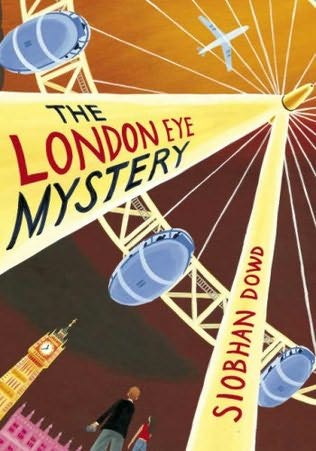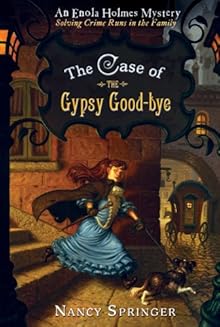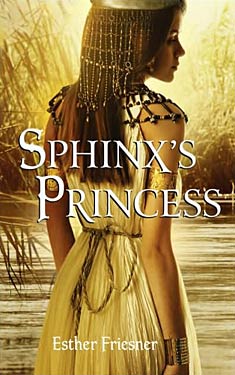 Synopsis: Several years have passed since the apprentice and his master, Will and Halt, led the Skandians to victory against invaders, and Will is finally a full-fledged Ranger with his own fief to look after. The fief seems sleepy - boring, even - until Lord Syron, master of a castle far in the north, is struck down by a mysterious illness. Joined by his friend Alyss, Will is suddenly thrown headfirst into an extraordinary adventure, investigating fears of sorcery and trying to determine who is loyal to Lord Syron . . . and who is planning to betray him. Will and Alyss must battle growing hysteria, traitors, and most of all, time. Lord Syron is fading, but when Alyss is taken hostage, Will is forced to make a desperate choice between loyalty to his mission and loyalty to his friend . . .
Synopsis: Several years have passed since the apprentice and his master, Will and Halt, led the Skandians to victory against invaders, and Will is finally a full-fledged Ranger with his own fief to look after. The fief seems sleepy - boring, even - until Lord Syron, master of a castle far in the north, is struck down by a mysterious illness. Joined by his friend Alyss, Will is suddenly thrown headfirst into an extraordinary adventure, investigating fears of sorcery and trying to determine who is loyal to Lord Syron . . . and who is planning to betray him. Will and Alyss must battle growing hysteria, traitors, and most of all, time. Lord Syron is fading, but when Alyss is taken hostage, Will is forced to make a desperate choice between loyalty to his mission and loyalty to his friend . . .Review: I feel ashamed that I, a devoted bookworm and fan of the Ranger's Apprentice series, should have taken so long to get to Book 5. Especially when I was so excited about it. But even the best of us get distracted by life in general and other books that demand our attention. Despite the long delay, I have finally finished The Sorcerer of the North and intend to read The Siege of Macindaw in short order.
Before I begin my review, I want to inform you that The Ruins of Gorlan is my absolute favorite in this series. It always has been, and it always will be. The fact of the matter is I don't like Horace. Rather, I liked Horace in The Ruins of Gorlan because he was an ineffectual bully and it suited him so well. I didn't like it when John Flanagan made him and Will best friends, for now it meant that The Hulk (as I and my sister have dubbed him) would be almost everywhere that Will was. While it lent for some funny scenes in The Icebound Land, I don't agree that having a virtual wall as a main character is a good idea. So I was glad when I opened this book and found no Horace. Until the end, that is. Which means The Hulk is back in for The Siege of Macindaw. Sigh.
The Sorcerer of the North was not my favorite from the very start. Something struck me as off about the characters, and last night I finally pegged it: Will has taken on some of the characteristics of Halt. While this certainly would happen because Will has trained under Halt, it was more like the Author was trying to combine Halt and Will together, and the result was not very pleasing. Will is Will; Halt is Halt. The two personalities do not mix well in one person. And also, what short and few scenes Halt is in, he isn't acting himself. I realize that Halt is now older than in the previous four books, but there was still something that did not ring quite true to his character. His comments were almost childish and often completely unnecessary. Halt is not someone who would make unnecessary chatter. Also, the dialogue became much more modern in style. John Flanagan's dialogue has always been rather modern-styled, and his writing in general movie-ish. I excuse him this fault because he used to write for the television sitcom Hey Dad! But it really felt as if it were vamped up more in this one.
However, I don't want my Readers to get the impression that I disliked this book, because I didn't. The storyline was very intriguing and I didn't figure out who was to blame for the hauntings and whatnot until I was halfway through the book. (Of course, once I did, it was so obvious that I became frustrated with the characters for not figuring it out just as quickly. But I suppose that if they had, the book would not have been as long.) And I am immensely glad that Alyss replaces Evelyn/Princess Cassandra as the leading lady. I really liked Alyss. She is intelligent, resourceful, not at all afraid to get her hands dirty, but still retains a very sophisticated, elegant manner. She doesn't tote an attitude about, and while there is certainly flirting between her and Will (inevitable, that), she is not obnoxiously mushy around him at all. When she is working, her mind is completely on the job at hand. And she is able to have friendly talks with Will without it turning into mushy-mushies every bloody time. Most importantly - and what makes her so much better than Evelyn - Alyss is useful and does not whine.
I am glad that I have The Siege of Macindaw to read directly after this one; the two are most certainly connected. Book 5 - The Sorcerer of the North isn't as good as the first 4 - I wasn't expecting it to be, - but it was still very enjoyable and the storyline quite engaging. Fans of Halt will be sad that he isn't in it much, but fans of Tug (like me!) will be pleased that Will isn't forced to travel without his clever little pony, but takes him along.
Like all of Ranger's Apprentice, this one comes highly recommended - just don't expect it to be as good as the first four.
Star Rating: 2/5 (it was ok)
Others in the Ranger's Apprentice Series:
1)The Ruins of Gorlan
2)The Burning Bridge
3)The Icebound Land
4)The Battle for Skandia
5)The Sorcerer of the North
6)The Siege of Macindaw
7)Erak's Ransom
8)The Kings of Clonmel
9)Halt's Peril
10)The Emperor of Nihon-Ja
11)The Lost Stories


















